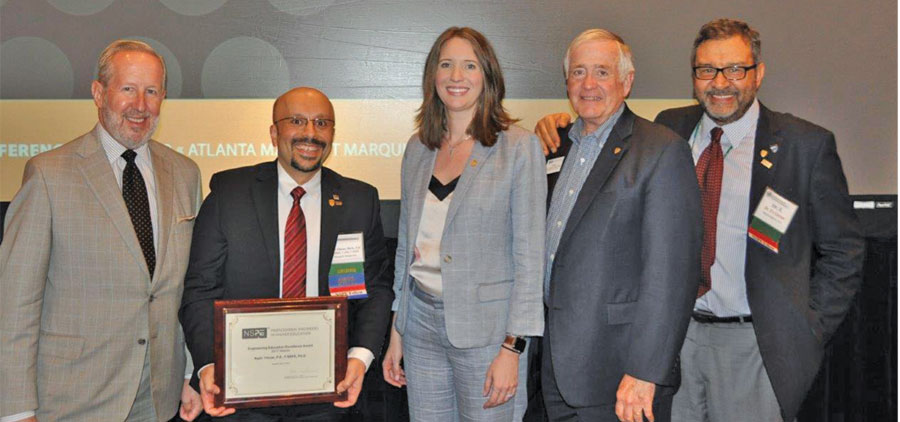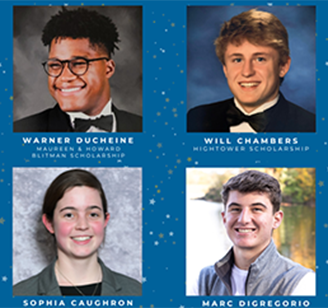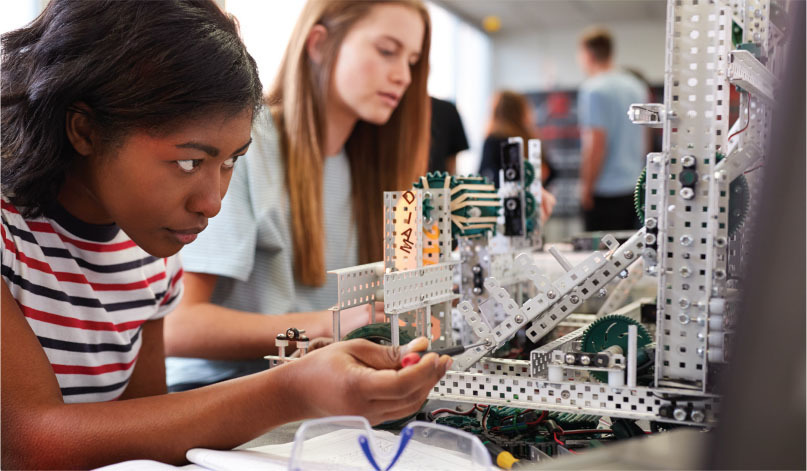September/October 2017
Communities: Education
Giving to Students and Profession Motivates Hardworking Award Winner
Just reading his bio can make you tired. Nadir Yilmaz, P.E., Ph.D., F.NSPE, an educator, consultant, author, editor, and active volunteer, is the 2017 winner of NSPE’s Engineering Education Excellence Award, given each year by the Professional Engineers in Higher Education. The award recognizes licensed faculty who link engineering education with professional practice.
Yilmaz, professor and department chair of mechanical engineering at Howard University in Washington, DC, is a Fellow of NSPE, the American Society of Mechanical Engineers, and SAE International. He has authored publications in topics including combustion, rocket propellants, and internal combustion engines. He serves as the editor-in-chief for the SAE International Journal of Fuels and Lubricants and as associate editor for the ASME Journal of Engineering for Gas Turbines and Power. He has been actively involved in various leadership roles in NSPE and state and local chapters, and served on the New Mexico State Board of Licensure for Professional Engineers and Surveyors. And he has educated and trained underrepresented minority and female students via various STEM programs, as well as advised student chapters of NSPE, ASME, SAE, and AIAA (the American Institute of Aeronautics and Astronautics).
Yilmaz has won additional teaching awards from the American Society for Engineering Education, SAE, and ASME, and he was the 2014 NSPE Young Engineer of the Year.
PE was grateful to get Yilmaz’s time to answer a few questions.
As an educator, you consistently win awards. How would you describe your teaching style?
Quite often I use “student-centered pedagogy” in my classes. I believe shifting the focus of instruction from the instructor to the student is the key for success.
It is important to teach theory, but if students have knowledge of real-world applications along with it, their potential to succeed and excel in their academic careers and chosen fields increases considerably. I support students in and out of the classroom. I encourage my students to get hands-on experience through internships, research, and competition-based projects.
Inside the classroom, I foster an environment where students feel free to ask any questions. My policy is simple: open door. Students can stop by and ask questions or get career advice from me anytime. What makes a great educator is not merely being a great teacher but, more importantly, helping students in and out of the classroom anytime so that they can become the best that they can be.
This award is given to faculty who link engineering education with professional practice. Discuss some of the ways you do that.
I focus on hands-on experience in my labs and coursework so that my students are well-prepared for the real world. Part of this involves making students aware of professional societies such as NSPE. I have advised student chapters to promote the FE exam, PE licensure, Order of the Engineer for professionalism, and ethics.
These activities are important steps towards making students aware of the importance of licensure and professional practice. Professional societies such as NSPE offer engineers the opportunity to be better industry participants and life-long learners.
You’ve also focused on helping minority students excel in STEM. Can you elaborate?
I have extensively supported minority students, mostly under the National Science Foundation Alliance for Minority Participation (NSF AMP) program, [which] guides students through the entire research process, including dissemination and presentation at national conferences. I consider myself fortunate to have had a very successful legacy of students who, through the help of this program, achieved remarkable success in their careers, both academic and professional, including many students who continued to pursue graduate programs for MS and PhD [degrees], as well as [took] positions in industry and national laboratories.
In 2014, a group of AMP students and I wrote an American Society for Engineering Education paper. As discussed [in it], based on current projections, the United States will be a majority-minority nation by 2043. By 2060, the Hispanic population will have doubled and the African-American population will have increased by a factor of 1.5. Fostering minority students in STEM fields is going to be critical to maintaining international presence as a nation.
You participate in many different professional organizations. What advice would you give to others about this?
As an engineer and a citizen, it is my responsibility to give back to the industry as well as [to] society and the community. I am heavily involved in five professional societies, and much of my success in my career can be linked back to the networking and support offered by these societies. Two of my greatest mentors are engineering icons that I met through my participation in NSPE [Walter Buchanan, P.E., Ph.D., F.NSPE, and 2015 Engineering Education Excellence Award winner Ahmet Zeytinci, P.E., Ph.D., F.NSPE]. My interactions with them have greatly enhanced both my professional and academic skills and achievements.
I advise others to be involved in professional organizations in any capacity they can. They can be a member, advocate, committee chair, or even president, depending on qualifications and commitment. Everyone can/should find some time to give back to their profession and their community!
What drives you the most?
The answer is simple: My bottom line has always been students and their success. As an engineering educator, my primary goal is to be the best role model for my students. If students are successful, it shows my success and drives me to work even harder, and I want them to be even more successful. It is a continuous loop. Successful outcomes and making a difference not only energize me to work above and beyond my work hours and daily routines, but [doing so] is also fun!

AFTER BEING PRESENTED WITH HIS AWARD AT THE 2017 PROFESSIONAL ENGINEERS CONFERENCE IN ATLANTA, NADIR YILMAZ (SECOND FROM LEFT), CELEBRATED WITH (FROM LEFT) NSPE EXECUTIVE DIRECTOR MARK GOLDEN, 2016–2017 PRESIDENT KODI VERHALEN, P.E., ESQ., F.NSPE, 2017–2018 PRESIDENT TOM ROBERTS, P.E., F.NSPE, AND 2015 AWARD WINNER AND MENTOR AHMET ZEYTINCI, P.E., PH.D., F.NSPE.


 Volunteering at NSPE is a great opportunity to grow your professional network and connect with other leaders in the field.
Volunteering at NSPE is a great opportunity to grow your professional network and connect with other leaders in the field. The National Society of Professional Engineers (NSPE) encourages you to explore the resources to cast your vote on election day:
The National Society of Professional Engineers (NSPE) encourages you to explore the resources to cast your vote on election day:



